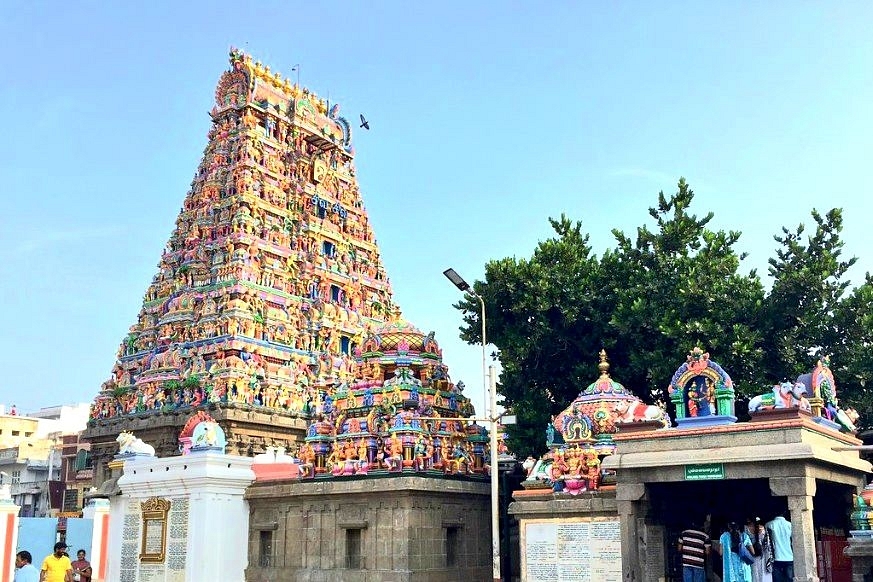News Brief
After Being Denied Income From Its Premises For Over Two Decades, Chennai Kapaleeshwarar Temple Begins Getting Rs 2.5 lakh Monthly Rent
- According to information provided by the State HR&CE Department to temple activist J Mohanraj under the RTI Act, a bank and a garment shop, both lessees, have begun paying the rent to the temple, following a Madras High Court order.

The Kapaleeshwarar Temple in Mylapore, Tamil Nadu. (@seyyedreza/Twitter)
The Arulmigu Kapaleeshwarar temple in Mylapore area in Chennai, Tamil Nadu, has begun collecting a rent of Rs 2.5 lakh rupees per month from Central Bank of India and a garment shop for using its premises at a prime commercial area.
The payment of rent to the temple comes after it had been denied the payment of rent for nearly two decades.
According to information provided by the State Hindu Religious and Charitable Endowments (HR&CE) Department to temple activist J Mohanraj under the Right to Information (RTI) Act, the bank and the garment shop have begun paying the rent to the temple following a Madras High Court order.
An earlier petition under RTI by Mohanraj to the Central Bank of India asking who it was paying the rent for its premises to, he got a reply that the bank was paying the rent to an individual.
He raised the issue with the HR&CE Department in vain, forcing him to petition the Madras High Court last year.
About 24 grounds (each 2,400 sq ft) of the Kapaleeshwarar temple land on Luz Church Road was leased for 99 years in 1898 for Rs 100 to one Soundararaj Iyengar.
Of the land taken on lease, about 4,300 sq feet was sub-let following which the building on which the bank and garment shop were housed came up.
In 2012, the HR&CE Department woke up to reality and began taking action.
In 2017, the HR&CE Department Commissioner ordered the temple authorities to directly collect the rent from both the premises.
But the temple administration failed to act for “extraneous reasons”, according to Mohanraj.
When he petitioned the High Court, it ordered the HR&CE Commissioner to take a final decision based on which a new agreement was signed between the temple, the bank and the garment shop in November last year.
This is one of the measures that has ensured that the temple has begun getting its due income from the lands and properties donated to it by various devotees.
Earlier, 12 grounds of the temple were recovered and it is now being used as a parking lot for the devotees, helping the temple get additional revenue.
Introducing ElectionsHQ + 50 Ground Reports Project
The 2024 elections might seem easy to guess, but there are some important questions that shouldn't be missed.
Do freebies still sway voters? Do people prioritise infrastructure when voting? How will Punjab vote?
The answers to these questions provide great insights into where we, as a country, are headed in the years to come.
Swarajya is starting a project with an aim to do 50 solid ground stories and a smart commentary service on WhatsApp, a one-of-a-kind. We'd love your support during this election season.
Click below to contribute.
Latest